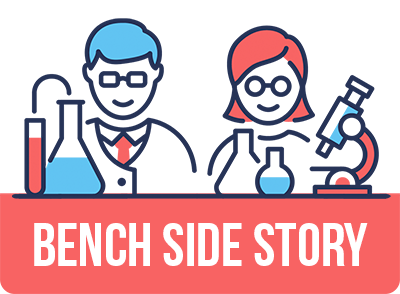RESEARCHER PROFILE
Professor Alice Rumbold (Filmed November 2023)
Perinatal epidemiologist & Co-Theme Leader of
SAHMRI Women and Kids
South Australian Health and Medical Research Institute &
Research Leader, Robinson Research Institute
University of Adelaide
Adelaide, Australia
Professor Alice Rumbold is Theme Leader of SAHMRI Women and Kids, managing a multidisciplinary research team focussed on improving health outcomes for women, babies and families. She also holds an affiliate position as a Research Leader within the Robinson Research Institute at the University of Adelaide.
An epidemiologist and health services researcher, she is internationally renowned for her leadership of large-scale clinical trials, epidemiological studies and systematic review activities to improve perinatal and reproductive health care. She is passionate about improving health outcomes for women and babies, particularly those experiencing vulnerability. Her current research interests include preterm birth, breastfeeding, human milk banking and infertility.
She has held continuous NHMRC funding as a CI since 2007, totalling >$21.2m across 13 grants, including a NHMRC Career Development Fellowship. Her research has generated significant publications in top-ranking journals such as the New England Journal of Medicine, Lancet Global Health, British Journal of Obstetrics and Gynaecology, Human Reproduction and American Journal of Epidemiology, including 11 papers with over 100 citations.
Professor Rumbold’s current research is primarily focused on improving breastfeeding outcomes in preterm babies. She runs several clinical trials that aim to improve breastfeeding outcomes in premature babies, a vulnerable group that is known to have difficulties with establishing breastfeeding. Alice’s research tests new interventions to improve breastfeeding outcomes in these babies, as breast milk is particularly crucial for their development.
Professor Rumbold finds motivation and inspiration from the families participating in her research. These families often participate while knowing that they may not receive direct benefits from the research. She is also driven by the potential to have lifelong impacts on health and opportunities by improving outcomes in the early months of life.
Apart from research, Professor Rumbold loves music. She enjoys listening to it, playing it, and attending live music events. She is a keen cellist and pianist and was previously involved with the Darwin Symphony Orchestra.
You Might also like
-
Next Generation Condom Contraception, Dr Simon Cook
Dr. Simon Cook, Co-Founder and Executive Director of Operations at Eudaemon Technologies, has had a diverse and impactful career journey. Beginning with a background in biotechnology from the University of Wollongong, his focus on bacterial pathogenesis during his PhD led him to study Group A Strep and the streptokinase protein.
Subsequently, Dr. Cook ventured into a unique project funded by the Bill and Melinda Gates Foundation, where he became involved in the development of a next-generation condom to address existing issues such as feel, odour, and taste.
-
Dr James Pang
DR JAMES PANG, RESEARCH FELLOW
TURNER INSTITUTE FOR BRAIN AND MENTAL HEALTH, MONASH UNIVERSITY
VICTORIA, AUSTRALIA -
Big data to improve the use of antidepressant medicines in aged care
Georgina Hughes is a pharmacist & PhD Candidate with the University of South Australia Clinical and Health Sciences and the Registry of Senior Australians (ROSA), undertaking research at South Australian Health and Medical Research Institute (SAHMRI).
Georgina’s PhD study and first published paper was on how to improve the safe and effective use of antidepressant medicines and optimise quality use of medicines in older people accessing residential aged care.



